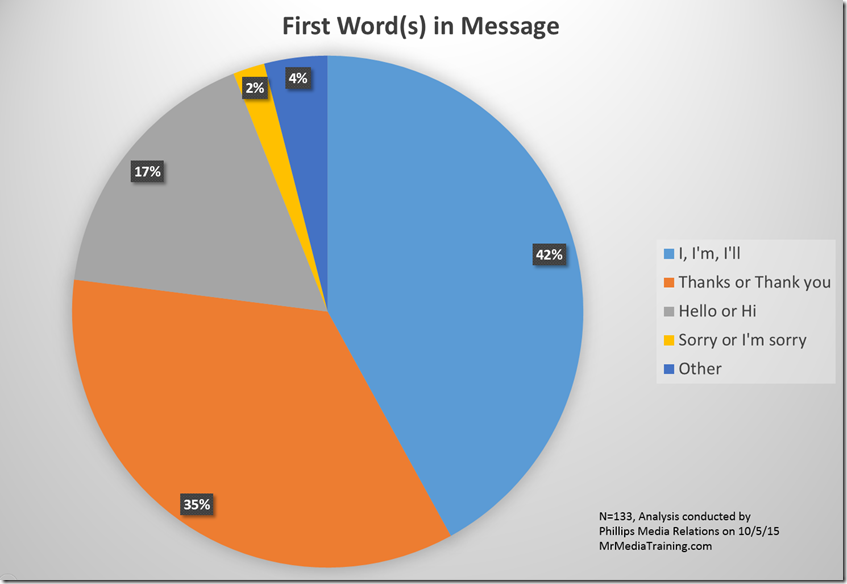Media Relations And The Seven Deadly Sins
This is a guest post by Ted Flitton, a public relations professional working in the banking industry.
For centuries, the Catholic Church has used the teaching of vice as a guide to help people live a virtuous life.
Today, those ancient lessons have spread throughout much of western society and popular culture. They form the subplots of movies, books, and theater. Smart reporters even use the seven deadly sins to provide a narrative depth to news stories. Media relations practitioners take notice.
Recently, Sun Life Financial found itself subtly cast less-than-favorably in a news story in which a policyholder with dementia took an action that had a near-disastrous financial consequence for his family. According to the Canadian Broadcasting Corporation, Bruce Gabriel was a policyholder who suffers from Alzheimer’s and vascular dementia:
“…as his mind was slipping, in 2010, he called up his insurance agent — when his wife was away at work — to cancel his two policies.
He had paid more than $17,000 in premiums since 1983 and cashed in for less than $2,000 on policies that would have paid his family $140,000 when he dies.”
Upon discovery, Bruce’s wife Debbie tried to have the situation reversed. After four years of pleas, the company remained steadfast. It then wanted Bruce to undergo extensive tests and still did not reverse course, budging only after media inquired about the standoff. This can be characterized as sloth.
Other characterizations in the story are more damning. The CBC writes that Sun Life “repeatedly refused to undo the damage” to the family’s finances and labeled letters denying coverage as “rejections.” Unable to get other coverage, Debbie said the experience left them feeling “very powerless in the face of big business,” and that she and her family felt “vulnerable … and we had no recourse.” She added the family felt “robbed” of a sense of security and Bruce Gabriel said they felt “stolen from.” Enter the second “sin,” malice.
Sun Life’s own words can be viewed as adding to this narrative. In letters to Debbie, it concludes the tests it ordered “do not provide any new evidence that your husband was incompetent and therefore, incapable of making the decision he made.” Later, when reversing course and reinstating the policy, a spokesperson said, “We are making an exception on compassionate grounds in this unique case,” as though the company was begrudgingly doing the family a favor. The lack of support to the family, combined with sometimes harsh language used by the company and others, underscores a narrative of pride.
I have sympathy for Sun Life. The perception of slothful behavior is difficult for many companies to avoid: they must do their utmost to investigate all situations thoroughly to protect policyholders and investors. To make hasty decisions is financially irresponsible, precedent-setting, and could cause harm to others depending on them.
“Sloth” could also be a deliberate strategy. The company could truly view this situation as exceedingly unique and may be making an exception after rigorous investigation. Of course, this strategy is fraught with risk and an accusation of sloth is often the first domino that starts the narrative chain reaction.
Media relations practitioners must decide: Which strategy will you choose—and are you prepared for that plan’s related baggage?
A Better Approach
In an alternative conclusion to this matter, the company could have written:
“As our population ages, we suspect there will be more families who will find themselves in a similar unthinkable situation. Many companies, including ours, need to train front-line personnel to be better prepared to identify and at least try to take preemptive action to avoid them. No company can avoid all of them—but we can work harder to reduce such situations, and we will.”
The CBC article referenced another constructive approach by quoting a representative of the Alzheimer’s Society of Ontario, who argued for contractual cooling off periods for people struggling with dementia. Working with such an organization could generate better protocols and provide a powerful balanced third party, thereby reducing the number of sins—real or perceived—being cast upon Sun Life.
Ted Flitton is a public relations professional working in the banking industry. He is also the owner of T Communications. He lives in Calgary, Alberta.
Don’t miss a thing! Click here to instantly join our mailing list and receive the best of the blog twice each month.




As always, Brad, a salient topic from your blog. Thanks. I had an experience just this week that illustrates how easy it would be for front-line people to act. I am moving to Europe and found a coffee maker/bean grinder combo operating on 220 volts that would allow me to enjoy American coffee every now and then. I ordered and got an email from the company within an hour asking to verify the order. “This is 220 volts and will not operate in the US. Are you sure you want it?” Wow. I thanked them for asking and assured them I was using it in Europe. Even most software programs ask if you are sure you want to delete something before carrying out your command. I always say the best PR philosophy is to not get into trouble in the first place. Great post.